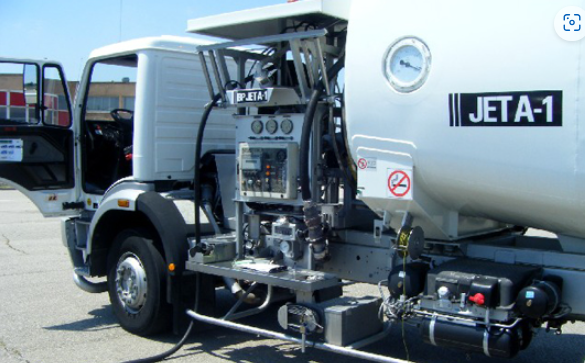The Nigerian Government said it discovered that some fuel suppliers were operating at Nigerian airports illegally.
This was disclosed by Capt. Musa Nuhu, Director-General, NCAA, in a meeting with aviation correspondents on Thursday in Lagos, coming after a series of small setbacks in the industry including an investigative report of contaminated fuel and the recently crashed small plane in Ikeja, Lagos.
The NCAA chief added the illegality was discovered during a meeting with the Nigerian Upstream Petroleum Regulatory Commission/Department of Petroleum Resources (DPR) and check the activities of unapproved aviation fuel marketers.
Contaminated fuel
Capt. Nuhu stated that the Nigeria Civil Aviation Authority (NCAA) says it will check the activities of unapproved aviation fuel marketers involved in the supply of contaminated Jet-A1 to unsuspecting airlines, reacting to four incidents of contaminated Jet-A1 fuel with water discovered from commercial aircraft tanks.
Nuhu said during the investigation, it was discovered that some unapproved aviation fuel marketers found their way into the airports, thereby supplying the commodity to unsuspecting airlines.
The investigation was done alongside the Nigerian Upstream Petroleum Regulatory Commission/Department of Petroleum Resources (DPR), that some fuel suppliers were operating at Nigerian airports illegally.
False Supply
Nuhu added that Authority has a list of approved aviation fuel companies by the DPR but discovered that some suppliers currently operating at the airports were not on the list, citing NCAA would also inform the Federal Airports Authority of Nigeria (FAAN) about the development, he added:
- “Investigation is ongoing, we are doing this in collaboration with the DPR and we have got the list of all companies approved by the DPR.
- “We found out that some were not approved, we will write FAAN about this to ensure they withdraw their services until they meet all requirements.
- “Any Jet-A1 supplier must be approved because it needs a lot of standards. Although, there was a gap between the DPR and NCAA but that has been closed.
- “The issue of fuel contamination is not acceptable and no international airline has reported fuel contamination but it is an alarming thing that needs to be looked into.
- “We have set up a committee comprising representatives of relevant agencies to look at the entire system and make recommendations, however, it is still the responsibility of the airline pilot to check his fuel,” he said.
Other developments
Nairametrics also disclosed that The Director-General of Nigeria Civil Aviation Authority (NCAA) Capt. Musa Nuhu shed more light on why the NCAA reviewed upward the minimum number of aircraft an impending airline would require before being issued an Air Operator’s Certificate (AOC).
Nuhu, said that the plan by the NCAA was to ensure that the operators are more responsible in their operations to their clients, and explained that an airline with just one or two aircraft had the potential to disappoint passengers in case one of the airplanes developed a snag, but emphasised that with a minimum of six airplanes, such delays and cancellations would reduce.
He said:
- “The problem is that a lot of these airlines in Nigeria don’t even have the capacity to meet current financial obligations.
- “If you have three aircraft for instance and you lose one out of them, it has become a problem to meet up with your operations.
- “Then, you start to have issues with flight delays, cancellations and all that.
- “The number of aircraft you will have will depend on the kind of operations you want to do. You can imagine somebody who comes in with just one or two aircraft and one of the aircraft goes out of business, and he sells tickets to the passengers, think of what will happen.
- “For you to have six aircraft, it shows you have a very strong financial background in running an airline.
- “It is not only for new entrants, but the old ones too have a period by which they have to comply. If everybody has one or two aircraft, we will keep having this recurrent problem. We have to avoid that.
- “People will criticise, but every country is different. We have to look at our own peculiar history and try and come up with solutions.”
